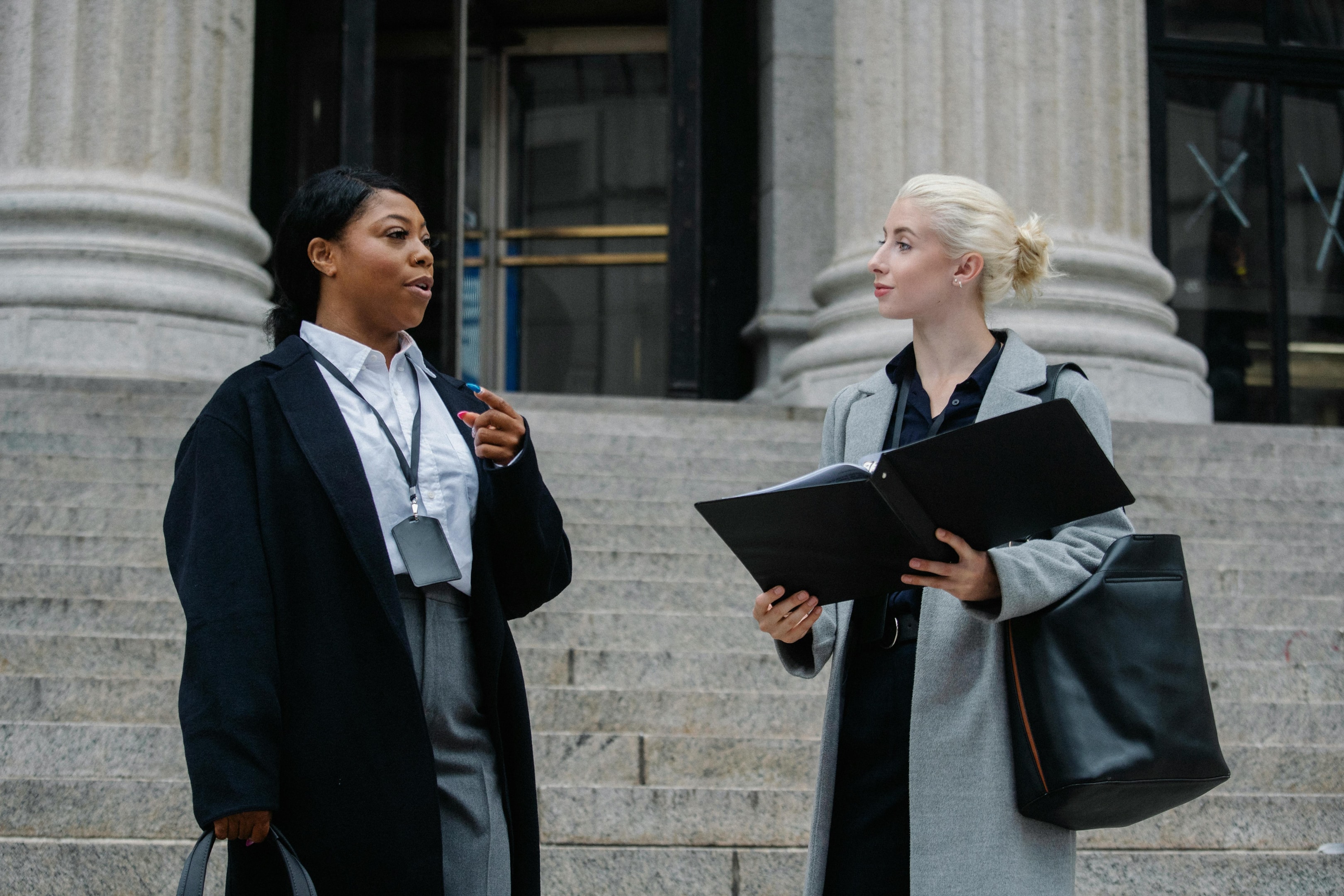How to Build Relationships with Probate Attorneys for Better Referrals

Why Probate Attorneys Are Valuable Allies for Real Estate Investors
If you're serious about real estate investing—especially finding off-market deals—then probate attorneys can be a goldmine. They're often the gatekeepers to real estate opportunities that haven't yet hit the public market. Forming meaningful partnerships with them is one of the smartest moves an investor can make. Probate attorneys assist in settling debts, facilitating discussions about heirs, and distributing assets like real estate, securing estate assets, ensuring a smooth progression through probate.
Understanding Their Role in Probate Cases
Probate attorneys guide families through the legal maze that follows the death of a loved one. This includes validating wills, reviewing the death certificate, settling debts, and distributing assets like real estate. In many cases, the family is looking to sell the inherited property quickly and notifying beneficiaries, which presents a perfect opportunity for investors. To learn more about these prime investment opportunities, read How to Find Probate Properties: The Ultimate Guide for Investors and Buyers.
Why They Matter in Off-Market Property Deals
Because attorneys are involved before a property hits the market, you can gain early access to prime investment opportunities—often with little competition. These deals are usually motivated by urgency and can lead to discounted purchases and flexible terms.
Mindset Shift: From Transactional to Relationship-Oriented
Too many investors make the mistake of treating attorney outreach like a lead grab. That's the wrong mindset. Building relationships with probate attorneys is a long game.
Focus on Value, Not Just Lead Generation
Your first contact with a probate attorney should never feel like a sales pitch. Instead, approach it as an opportunity to offer genuine value. Ask yourself: How can I make their job easier and more efficient? Perhaps you can help by managing difficult sellers, ensuring smooth property closings, or providing timely updates on estate assets. Position yourself as a problem solver who understands the challenges they face, and demonstrate how your involvement can alleviate some of their workload.
Long-Term Benefits Over Quick Wins
Building a relationship with a probate attorney is about playing the long game. One solid, trustworthy connection can open doors to dozens of deals over time, far more valuable than any single quick transaction. Treat this relationship with care, respect, and professionalism. Show consistent reliability and integrity, and the attorney will be more likely to think of you first when opportunities arise. The payoff from nurturing these connections can multiply significantly as your reputation grows within the probate and estate law community.

Research Before You Reach Out
Random outreach to every attorney in town won't get you far. Instead, take the time to do thorough research and homework to identify the most suitable probate attorneys who align with your goals and values. By targeting the right professionals, you increase your chances of building meaningful, long-lasting relationships that can lead to fruitful opportunities. Quality always beats quantity in this business, so focus on making each connection count.
Find the Right Attorneys (Not Just Any Lawyer Will Do)
Focus on attorneys who specialize in probate and estate planning, and ensure you are selecting the right probate lawyer for your needs. These professionals handle real estate matters regularly and are most likely to work with clients who need to sell. To learn how to find reliable probate attorneys near you, read Local Probate Attorneys: A Goldmine for Real Estate Professionals.
Tools and Directories to Use for Your Search
Avvo & Justia – Filter by practice area and location
Google Maps – Search "probate attorney + your city"
State Bar Websites – Most allow public lookups by specialty
LinkedIn – Great for researching mutual connections and firm affiliations
How to Make the First Contact Without Being Pushy
Email Scripts That Work
Keep your first email short, friendly, and value-oriented. Here's an example:
Subject: Helping Your Clients with Probate Property Sales
Hi [Name],
I work with families going through probate who need a hassle-free solution for selling inherited property. I understand these situations can be sensitive, and I always prioritize discretion and professionalism. I'd love to connect and see how I can help support your clients when the need arises.
Warm regards,
[Your Name]
How to Make a Memorable Introduction
Mention something specific about them. Maybe you saw them speak at a local seminar or read a blog post they wrote. Personal touches break the ice and show that you've done your homework, making your outreach feel more genuine and thoughtful.
Avoiding Common Mistakes When Reaching Out
When reaching out to probate attorneys, avoid leading with phrases like "I buy houses." Such language can come across as pushy and insensitive given the delicate nature of probate cases. Don't ask for referrals in your initial message, and steer clear of sending mass, generic emails that feel impersonal. Instead, personalize every message to show genuine interest and respect for their work. Tailoring your communication demonstrates professionalism and increases the likelihood of building a meaningful connection.

How to Demonstrate Value from Day One
Share Relevant Case Studies or Testimonials
Send a brief, well-crafted summary of a recent case where you successfully helped a probate seller resolve a property issue quickly and efficiently. Highlight your collaborative work with the probate attorney involved, emphasizing how your expertise and proactive communication contributed to a smooth transaction. Including testimonials from attorneys or clients can further build credibility. This approach shows that you are experienced in handling probate deals with professionalism and respect, which reassures attorneys that referring clients to you will reflect positively on their own practice.
Educate, Don't Pitch
Focus on sharing valuable, educational content rather than overt sales messages. Provide information such as probate timelines, implications of estate taxes on property sales, or a clear overview of your process when working with probate properties. Explain how your involvement can help attorneys and their clients make informed decisions during the probate process. This educational approach positions you as a trusted expert who understands the nuances of estate law and probate court matters without overstepping legal boundaries. By demonstrating your knowledge and willingness to support the legal community, you foster goodwill and encourage attorneys to consider you a reliable resource for their clients.
Create a Consistent Follow-Up System
The magic is in the follow-up. Most people quit too early, missing out on the opportunity to build meaningful connections with probate attorneys who can become valuable partners in your real estate investing journey.
How Often Should You Follow Up?
Consistency is key when nurturing relationships with probate attorneys. Start with a light touch by following up weekly for the first month after your initial contact. This keeps you on their radar without overwhelming them. After the first month, reduce your outreach to monthly check-ins to maintain the connection over time. Each follow-up should provide value—whether it's sharing a helpful article, a market update, or a useful resource related to probate law or estate assets. Avoid simply "checking in" with generic messages; instead, aim to educate, assist, or offer solutions that make their job easier.
Multi-Channel Communication Strategy
Relying solely on email limits your chances of making a lasting impression. Implement a multi-channel approach to maximize your visibility and build rapport. Connect with probate attorneys on LinkedIn to engage with their professional content and show genuine interest in their work. Send personalized thank-you cards or handwritten notes after meetings or significant interactions to add a thoughtful touch. Leaving voicemails can also be effective—keep them brief and focused on how you can support their practice or clients. Varying your outreach methods not only demonstrates your commitment but also increases the likelihood of receiving timely responses and establishing trust.

Networking Strategies That Actually Work
Attend Estate Planning or Probate-Focused Events
Look for local seminars, Continuing Legal Education (CLE) classes, workshops, or panel discussions specifically focused on estate planning, probate law, or related topics. These events are excellent opportunities to meet probate attorneys, estate lawyers, and other legal professionals who regularly handle probate cases. Bring plenty of business cards, and engage in meaningful, casual conversations to build rapport. Demonstrating your genuine interest in their work and understanding of probate challenges will help establish credibility. Additionally, attending these events regularly will increase your visibility and position you as a committed participant in the local legal community. For more tips on how to build connections in real estate, read Mastering Real Estate Networking: Successful Strategies for Success.
Leverage Local Bar Associations and Workshops
Local bar associations often host mixers, luncheons, and networking events tailored for attorneys practicing in probate, estate law, and related fields. Attend these gatherings as a guest or consider sponsoring an event to raise your profile among local attorneys and law firms. Participation in these events allows you to connect not only with probate attorneys but also with other attorneys such as real estate attorneys and divorce attorneys who may have overlapping clientele. Building relationships with office staff and other attorneys in these settings can also provide valuable introductions and referrals. Consistent presence at bar association events helps build name recognition and trust, essential components for developing long-term partnerships in the legal community.
Building Trust Over Time
Be Reliable and Respect Confidentiality
Reliability is the cornerstone of any successful relationship with probate attorneys. Always honor your commitments and respect the sensitive nature of the information shared with you. Confidentiality is paramount—never gossip about deals, share confidential information, or press for insider details that are not freely offered. If an attorney refers a client to you, treat that client with the utmost care and professionalism. Demonstrating discretion and trustworthiness will encourage attorneys to feel comfortable sharing future opportunities with you, knowing that their reputation and client privacy are safeguarded.
Deliver on Every Promise
Consistency builds credibility. If you say you'll follow up on a specific day—whether it's Friday or any other time—make sure you do so promptly. If you promise a quote or information within 24 hours, send it without delay. These small commitments, when consistently met, accumulate into a strong foundation of trust. Probate attorneys juggle many responsibilities, and your dependability can ease their workload and make their job smoother. By being someone they can count on for timely responses and follow-through, you position yourself as a reliable partner in their probate cases, increasing the likelihood of ongoing collaboration and referrals.

Collaborating on Content and Events
Co-Host Educational Webinars or Seminars
Invite a probate attorney to co-present an informative session for your network of real estate professionals. This type of webinar or seminar can provide valuable insights to heirs and personal representatives navigating the complexities of probate real estate. Record the session to create lasting lead generation content that you can share with potential clients and attorneys alike, helping to establish your credibility and deepen your professional relationships.
Write Guest Articles or Blog Posts Together
Offer to ghostwrite or co-author an article for the probate attorney's blog or newsletter. Collaborating on content allows both of you to position yourselves as knowledgeable probate experts while expanding your reach to each other's audiences. Sharing this content on social media and professional networks can increase exposure and reinforce your partnership in the probate and estate law community.
Tools and CRMs for Managing Attorney Relationships
CRM Features to Track Touchpoints
Keeping a detailed record of your interactions with probate attorneys is essential for building strong relationships. Use CRM software to track every email sent, meeting held, follow-up made, and resource shared. This way, you won't lose track of important conversations or opportunities. Popular CRMs like HubSpot or Pipedrive offer user-friendly interfaces and automation features that make managing these touchpoints simple and efficient, helping you stay organized and professional.
Organizing Your Outreach Pipeline
An organized outreach pipeline is key to maintaining momentum with your contacts. Label each attorney in your CRM according to their current status, such as "New Prospect," "Warm Lead," or "Active Referral Partner." This categorization helps you prioritize your efforts and tailor your communication based on where each contact stands in your relationship-building process. Keeping your pipeline moving intentionally ensures you don't miss opportunities to deepen connections or follow up at the right time.
What to Avoid When Working with Probate Attorneys
Don't Act Like a Vulture
People are grieving, and the probate process is often an emotional and challenging time for families. Approach every interaction with sensitivity and genuine empathy. Be human—show that you understand the difficulty of their situation rather than focusing solely on the potential for profit. Avoid aggressive tactics or pushing for quick deals. Instead, position yourself as a helpful resource who respects their loss and wants to provide support in a respectful and compassionate manner. Building trust starts with kindness and patience. To learn how to position yourself in a positive, helpful way for these beneficiaries, read How Probate Investors Can Offer Value To Surviving Spouses.
Never Undermine Their Legal Role
Remember, you are the real estate expert, not the legal professional. Probate attorneys have a deep understanding of probate law, court procedures, and the fiduciary duties involved in managing a decedent's estate and ensuring they fulfill their fiduciary duty. When legal questions arise, always defer to their expertise and avoid offering legal advice yourself. This shows respect for their professional role and helps maintain a positive attorney-client relationship. By acknowledging their authority in legal matters, you build credibility and demonstrate that you value their knowledge and position within the probate process. Collaboration and mutual respect are key to a successful partnership.
Measuring the ROI of Attorney Partnerships
Tracking Referrals and Deals Closed
Use tags or deal sources in your CRM to meticulously track how many deals originated from attorney introductions. Assign a clear value to each referral to understand which relationships are most productive and worth nurturing. This data will help you identify patterns and refine your focus on the attorneys who consistently bring quality opportunities.
Adjusting Your Strategy Over Time
Not every outreach effort will yield immediate results. If a particular approach doesn't seem to be working after about 3 months, take the time to analyze why and revise your strategy accordingly. Your outreach plan should be flexible and evolve based on feedback, changing market conditions, and the responses you receive from attorneys. Continuous improvement will maximize your chances of success.

Final Thoughts on Strategic Partnerships
When you show up to help—not to sell—attorneys notice, and trust builds naturally. By consistently demonstrating professionalism, reliability, and compassion, you'll develop a reputation that encourages attorneys to refer clients to you organically. Building strong relationships with probate attorneys is not just about immediate gains; it's about fostering long-term partnerships based on mutual respect and shared goals. Remember, patience and genuine care go a long way in this field. Over time, these connections can lead to a steady stream of valuable referrals and opportunities that benefit both your real estate business and the clients you serve. Stay committed to providing value, maintaining clear communication, and respecting the sensitive nature of probate cases, and you will position yourself as a trusted ally in the probate and estate law community.